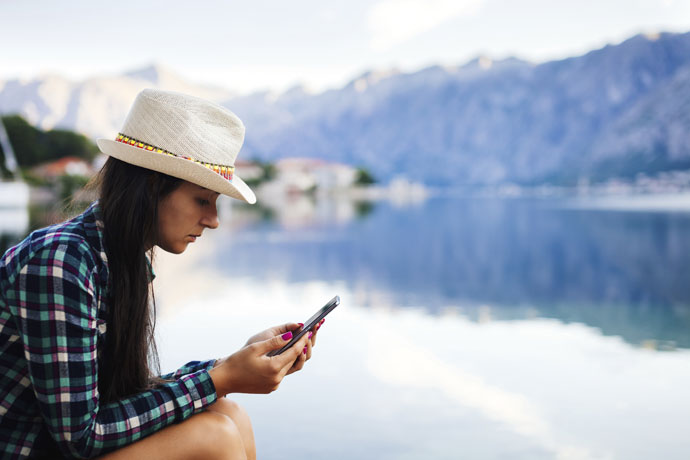
From its humble beginnings in a San Francisco loft, online property rental platform Airbnb now offers its 60 million users the chance to ‘live’ – even if only for a night – in over 57,000 cities throughout the world.
With more and more people booking through Airbnb, and the ever-present importance of having adequate travel insurance in place, it helps to understand what is and isn’t covered when staying in Airbnb accommodation. It must be stressed, however, that it is vital to read your travel insurance policy thoroughly before any trip in order to understand what your insurance provider will cover.

Generally speaking, most travel insurance providers will view an Airbnb property the same as any other type of rented accommodation, however there are a few points to consider depending on the type of property you are staying in.
If you damage your host’s property during your stay, the personal liability cover included in most travel insurance will cover these costs, which normally materialise by way of a lost deposit. Provided that the damage is accidental and has not arisen from dangerous behaviour (again, check your policy wording to see what your insurer will cover), then the annoyance of a spilt drink, broken handle or torn curtain, while inconvenient, shouldn’t be allowed to ruin a holiday.
When it comes to personal belongings, the usual rules will apply: keep doors and windows locked, objects out of sight and important documents such as passports or tickets on your person or in a safe, and you will be covered. However, the lines become slightly blurred if you are staying in a room within a house, which is a popular, cost-effective option offered by many hosts across the Airbnb network. In this instance, you would need to ensure that your room can be secured if you want your personal belongings covered. In short: if you are renting a room in an occupied house, check that the door can be locked before booking.
Cancellation policies vary on Airbnb. Generally, payment is taken immediately upon booking, and the later you cancel, the more it will cost you. The good news is that if you are forced to cancel a trip involving a stay in an Airbnb property, there is no reason why your losses should not be covered by your travel insurance, provided that the reason for cancellation is stated as being covered in your policy wording.
If your stay is cancelled by the host for reasons beyond your involvement, you are obliged to receive a full refund of any payment you have made, in line with Airbnb’s terms and conditions.

Cover for medical expenses will not be affected by the fact that you are staying in an Airbnb property, nor will any compensation paid out for a personal accident, providing that the policy terms have been adhered to. This normally means pre-existing medical conditions are not covered (unless you have taken out specific cover for them) and that the monetary limits set out in your policy schedule will apply.
Airbnb offers us an undeniably slick and straightforward experience when researching and booking properties online, but to a large extent we are at the mercy of the host’s biased description of the accommodation on offer. If you are wooed by promises of luxury accommodation in a thriving bohemian location, and arrive only to find a dank hovel rich in questionable odours, the bad news is that you will not be able to claim anything back. It is up to you to research the properly thoroughly before booking. Airbnb facilities this fairly well by providing clear location maps and a transparent, reciprocal reviewing system for guests and hosts. Of course if you have been blatantly mis-sold to, complaints procedures are in place, though you are encouraged to attempt to resolve the issue with your host directly before pursuing these avenues.

Taking out travel insurance before you go on a trip puts your safety and security in your own hands, and is always recommended. However, if you damage your host’s property and do not have any insurance in place, they may still be covered under Airbnb’s £600,000 Host Guarantee. Though it is not insurance, this guarantee is provided automatically for hosts and will cover certain eventualities. However, say Airbnb, it should not be considered as a replacement for homeowners or renter’s insurance.
The bottom line: staying in a property rented through Airbnb is, by and large, covered by most travel insurance policies. But don’t get caught out – check your policy wording before you book, and if you are unclear about anything contact your insurer.
Travel insurance that covers Airbnb
ETA Travel Insurance offers generous cover for medical expenses, baggage, lost passports, personal accident and delayed or cancelled journeys with an excess of only £50.
The ETA has been voted to be an ethical company like no other for two years in a row by The Good Shopping Guide. The ETA is 100% carbon neutral and every policy sold helps fund campaigning for sustainable transport.
George Mitchell
21st September 2019 until 4th November 2019 I will be in Japan can you give me some kind of travel insurance quote. I will be 70 years and 1 month old at time of departure. Regards George